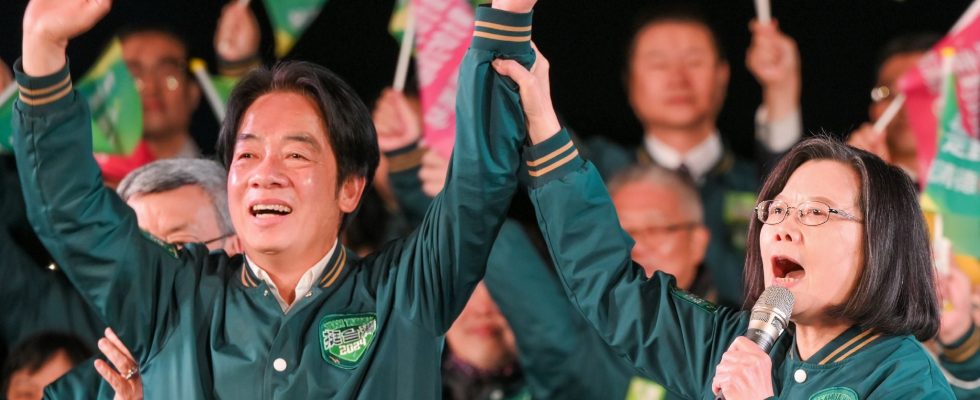Lai Ching-te, the candidate for Taiwan’s presidential election portrayed by China as a “serious danger” because of his pro-independence positions, topped the ballot this Saturday, January 13.
At the start of the evening in Taiwan (early afternoon in France), outgoing vice-president Lai Ching-te, 64, of the Democratic Progressive Party (DPP), obtained nearly 40% of the votes, according to the quasi-final results. He is ahead of his main opponent, Hou Yu-ih, 66, the Kuomintang (KMT) candidate who advocates rapprochement with Beijing, which has recognized its defeat. Ko Wen-je, 64, of the small Taiwan People’s Party (TPP) and who presents himself as anti-establishment, came third.
The Taiwanese also voted to renew the 113 seats in Parliament, where the DPP could lose its majority. This Saturday, in the approximately 18,000 polling stations, each ballot was held up high and read aloud by those responsible for counting – a process open to the public – before being counted. Offices closed at 4 p.m. (local time) in this territory of 23 million inhabitants, located 180 kilometers from the Chinese coast and hailed as a model of democracy in Asia.
Pressure from Beijing
All week preceding this double election, Beijing increased its diplomatic and military pressure. On Thursday, five Chinese balloons crossed the median line separating the autonomous island from China, according to the Taiwanese Ministry of Defense, which also spotted ten planes and six warships.
This Saturday, AFP journalists observed a Chinese fighter plane over the town of Pingtan, the closest to Taiwan. And on the Chinese social network Weibo, the hashtag “Election in Taiwan” was blocked in the morning. Beijing called on voters to make “the right choice” and the Chinese army promised to “crush” any desire for “independence”.
The status of Taiwan is one of the most explosive subjects in the rivalry between China and the United States, the territory’s main military supporter, and Washington plans to send an “informal delegation” to the island after the vote . On Friday, the head of American diplomacy Antony Blinken met in Washington with Liu Jianchao, head of the international division of the Central Committee of the Chinese Communist Party. He reminded him of the importance of “maintaining peace and stability across the Taiwan Strait.”
A conflict in the Taiwan Strait would be disastrous for the global economy: the island supplies 70% of the planet’s semiconductors and more than 50% of the containers transported worldwide pass through the strait.
